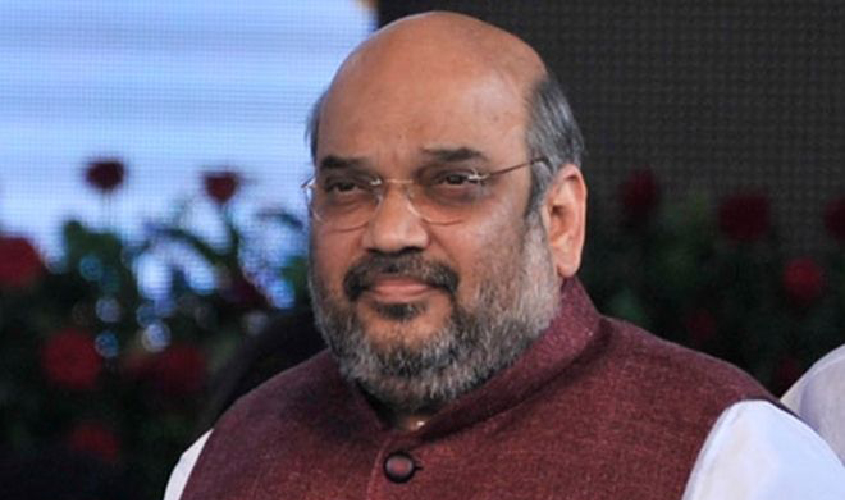NEW DELHI: Amit Shah is championing the revitalisation of India’s cooperative movement to boost grassroots economic development and empower local communities.
Union Minister of Home Affairs and Minister of Cooperation Amit Shah, is placing a strong emphasis on revitalising the cooperative movement in India, recognising its crucial role in fostering grassroots economic development, particularly in rural areas. The cooperative sector is vital for empowering local communities and enhancing their economic resilience, and Shah’s initiatives are aimed at reforming and strengthening this sector.
In July 2024, during an event in Gujarat, Shah announced the introduction of a new national cooperative policy designed to replace the existing policy from 2002. This updated policy aims to further strengthen the cooperative movement by extending its reach to the grassroots level. Currently, India boasts over 8.5 lakh cooperative societies with a member base of nearly 30 crore. These cooperatives engage in a diverse range of activities, including dairying, fishing, agro-processing, credit, housing, weaving, and marketing, reflecting the multifaceted nature of the cooperative sector.
Shah’s vision extends beyond agriculture, aiming to expand the cooperative network to include sectors such as dairy, fishing, textiles, and more. By diversifying the cooperative ecosystem, the government seeks to create a more resilient and adaptable framework that can significantly contribute to the overall economy. Shah envisions that by the time the International Day of Cooperatives is celebrated in 2029, every Panchayat in the country will have a Primary Agricultural Credit Society (PACS). Currently, there are about 65,000 functional PACS in India, with 48,000 already taking steps to enhance their viability by expanding their service profiles. Under the 2029 target, an additional 2 lakh PACS will be established across Panchayats nationwide.
The cooperative ministry is also working to strengthen cooperative banks, which play a crucial role in providing credit to farmers and small businesses. This involves improving regulatory oversight and encouraging the adoption of modern banking practices. Shah’s plans include enhancing cooperatives’ access to financial resources by facilitating entry into capital markets, providing credit guarantees, and promoting investment in cooperatives. By ensuring that cooperatives have the necessary financial backing, the government aims to empower them to serve their members more effectively.
Emphasising the concept of “cooperation among cooperatives,” Shah has instructed officials that if all economic transactions within the cooperative sector were conducted internally, there would be less reliance on external funds. The ministry has encouraged every PACS and other cooperative institutions to open accounts with district or state cooperative banks, which would not only strengthen the cooperative sector but also increase its capital and boost confidence among members.
A new initiative in the cooperative sector, called “Sahkar se Samriddhi” (Prosperity through Cooperatives), aims to advance cooperative development further. This initiative includes launching a 100-day development plan and revising key policies, such as amendments to the Multi-State Cooperative Societies Act and the Model Bylaws for PACS. The Model Bylaws will enable PACS to offer a range of services to farmers, including short-, medium-, and long-term credit, as well as fertilisers, seeds, pesticides, storage facilities, and banking services. By adopting these Bylaws, PACS will transform into multi-service centres that enhance their operational efficiency, transparency, and accountability while better serving rural areas.
The Ministry of Cooperation has also developed a comprehensive, authentic, and updated National Cooperative Database. This database aims to provide centralised access to reliable and current information about the 8.5 lakh cooperatives across various sectors in the country. It will include data on several aspects of cooperatives, such as their location, number of members, economic activities, and linkages. The National Cooperative Database project was executed in three phases, mapping various sectors and gathering data from national and state federations, cooperative banks, and other entities. Further advancing the vision of “Sahkaar Se Samriddhi,” Shah launched a computerisation scheme for the Registrar of Cooperative Societies (RCSs) and Agriculture and Rural Development Banks (ARDBs) across states. This scheme, with an investment of approximately Rs 225 crore, aims to modernise cooperative systems, including PACS, RCS offices, and ARDBs. The initiative seeks to extend digital cooperation to rural areas, promoting transparency and accountability. By enhancing the digital infrastructure within cooperatives, Shah’s vision is to integrate the entire cooperative sector into the digital age.

